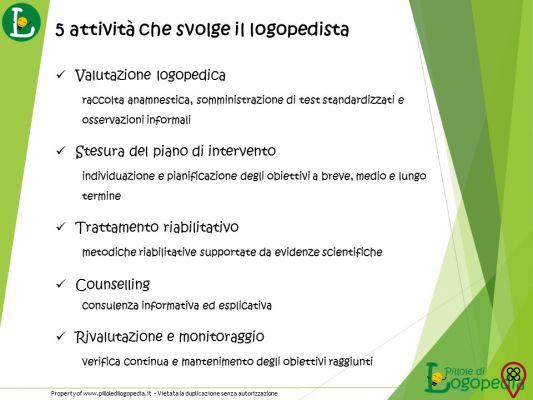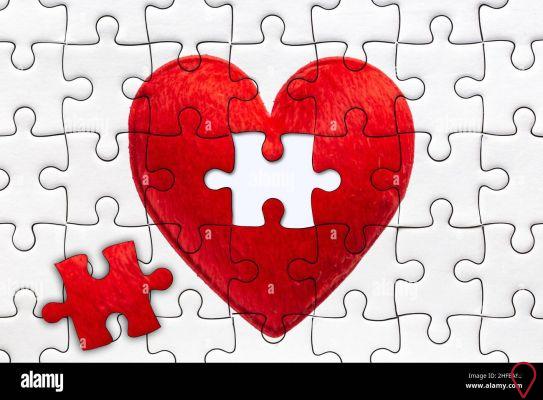Emotional trauma develops as a consequence of an adverse life event that threatens the physical or mental integrity of the subject who suffers it. Particularly heavy episodes, such as being a victim of violence, having personally experienced earthquakes, floods, accidents or wars, can generate emotional trauma.
However, these events produce important emotional and bodily reactions that the brain is not always able to process. Follow below what emotional trauma is, what are the most common symptoms of the disease, the situations that can trigger them and how to seek help to overcome emotional trauma.
What is emotional trauma?
The word “trauma” comes from the Greek and means “wound”. In this way, we can define it as: a “psychic” wound caused by one or more stressful events that threaten the mental and/or physical integrity of the person. This threat can be real or perceived, leaving the subject in a state of great vulnerability.
That is, when we are faced with a stressful event, all our defense mechanisms are triggered to deal with the situation. But if we realize that the danger is still present, the only way out of our brain is disconnection.
Emotional trauma is, therefore, very frequent and constitutes one of the main risk factors for the development of psychological disorders, in particular anxiety disorders, such as post-traumatic stress disorder, but not only.
In fact, a study published in 2017 by Vanessa Fernandes Fioresi, in her master's degree defended at the FMRP (Faculdade de Medicina de Ribeirão Preto) at USP (University of São Paulo) pointed out that an emotional trauma suffered by a child can influence a state of anxiety. in adult life. Such is the importance that more and more has been talked about mental health. That's why it's important to recognize symptoms of emotional trauma and seek appropriate treatment.
Symptoms
Symptoms of emotional trauma will appear soon after the traumatic event, over the course of a few days or weeks. However, for some people, symptoms of psychological trauma can become more severe and last longer.
First, we highlight the emotional and cognitive symptoms:
- Reliving trauma through flashbacks;
- Repetitive memories of the traumatic event;
- Nightmares;
- Avoidance/anaesthesia in the face of any stimulus reminiscent of trauma;
- High and lasting excitability/irritability over time;
- Hypervigilance to different stimuli;
- Persistent negative beliefs or expectations, for example: “The world is dangerous”;
- Persistent negative emotional state (fear, anger, guilt, shame);
- Emotional indifference;
- Confusion;
- Denial.
Second, it is also worth noting the physical symptoms:
- Lack of appetite;
- Headaches;
- Insomnia;
- Panic attacks;
- State of shock;
- Dizziness;
- Tachycardias;
- constant voltage;
- Physical pain in case of physical abuse or mistreatment.

Situations that can cause emotional trauma
Especially when we hear the word “trauma”, we quickly associate it with specific experiences that have a big impact on us. Some of these “specific” traumas we refer to are:
- Wars, homicides and terrorism;
- Natural disasters such as earthquakes, floods or fires;
- Sexual abuse, rape;
- physical abuse;
- Psychological abuse: usually intimidating interactions with people in the close circle (cyberbullying, bullying or mobbing);
- Illnesses of loved ones or own;
- Serious traffic accidents;
- Death of loved ones, especially when they are close and occur unexpectedly.
Given the seriousness of the situations, it is very likely that these events generate trauma in the person who experiences and/or witnesses them.
How to get over emotional trauma
As traumas are related to emotions, reason and language are usually not very effective. That is why it is necessary to resort to techniques that work directly on the unconscious and on the emotional part of the brain, where traumatic shock occurs.
Psychological treatment (or psychotherapy) helps to minimize and deal with the effects caused by a traumatic experience. With psychotherapy, the patient:
- 1 — Develop new coping resources that allow you to deal with future stressful situations;
- 2 — Adopt a more resilient attitude;
- 3 — Increases confidence in your abilities;
- 4 — Overcome trauma and regain control of your life.
Identifying psychological or emotional trauma
When we are unable to overcome a trauma, different disorders can appear that will affect our performance and our quality of life. Check out some:
Anxiety: Anxiety is a disorder linked to fear, so it is common that after a traumatic episode you develop a hypervigilant and apprehensive attitude that gives rise to anxiety.
Depression: When the trauma is too great, you can experience a deep feeling of helplessness and hopelessness. You can lose joy and reasons for living, and you can develop depression and even have suicidal thoughts.
Post-traumatic stress disorder: Trauma is relived in the form of recurrent, involuntary distressing memories that cause great discomfort. In some cases, dissociative reactions may appear in which you lose touch with reality and believe that the traumatic events are really happening.
Social isolation: Out of fear that a similar event will happen again, you may gradually limit your social activities and isolate yourself.
Dissociative Disorders: Dissociation is a clear symptom of having suffered an emotional trauma, as it is an automatic response of our brain to disconnect from pain.
How does trauma manifest?
After experiencing a traumatic event, your brain goes into shock and more often than not, you remember everything that happened to you over and over again. It can also happen that your conscious mind erases it, which will make you think you left no trace. This occurs when the trauma is very painful, so a dissociation mechanism is activated to prevent you from suffering too much, although this does not mean that trauma has not occurred.
In this sense, trauma can manifest itself as follows:
- 1 — Insomnia and nightmares at night. You are likely to remember the traumatic event overnight. You can remember isolated details or relive the whole experience all over again.
- 2 — Increased irritability. You are most sensitive to any circumstance, especially one that resembles the situation that caused the emotional trauma.
- 3 — Anxiety and nervousness. Lately you feel nervous, anxious and apprehensive about almost everything. It is likely that you are always alert, in a state of tension, as if something bad is going to happen at any moment.
- 4 - Fear of something: you have developed a fear of different situations, even the most normal of everyday life, or being scared easily and responding excessively to stimuli.
- 5 — Confusion and difficulty concentrating. You have trouble finding your daily rhythm, feel confused, and find it difficult to concentrate.
- 6 — Feelings of guilt and shame. Victims sometimes feel a deep sense of shame because they believe the traumatic event was their fault. Or you might get really angry and blame others for what happened.
- 7 — Emotional indifference. Maybe you've started to feel like nothing matters to you, the activities you were passionate about no longer interest you, and you feel disconnected from your emotions.
looking for help
First, if you think you may have suffered emotional trauma, it is important to see a professional psychologist. Treatment routes are diverse and may involve drug treatment, psychotherapy, or both.
The treatment of emotional trauma, therefore, consists of helping the patient to break out of the loop of thought or emotional blockage and to find ways to redirect the chronic over-stimulation he suffers.
The process
Human beings have the ability to progress. We have resilience: we overcome tests, use creativity to solve problems and set new goals to stay alive. Therefore, in this process it is important to persist and be kind to yourself. That's why we can develop actions such as:
- 1 — Set small short-term goals to motivate yourself;
- 2 — Surround yourself with positive people;
- 3 — Use humor to alleviate difficult situations;
- 4 — Meditate to reduce stress, depression and anxiety;
- 5 — Practice yoga to relax and increase concentration;
- 6 — Look for creative tasks such as painting, singing or knitting.
Things that get in the way of healing from trauma
People with emotional trauma often confuse what happened in the past with what is happening today, so when they experience new things it can be stressful. Unfortunately, some actions can get in the way of the process:
- Comparing Yourself to Others: Every person is different—and the same goes for the trauma healing process. For some, depending on the case, it may take longer. So avoid comparison at this moment and focus your strength on what you can do today.
- Believing that healing comes quickly: some emotional trauma can take a long time to overcome. Therefore, there is no magic cure. The process can take time, requiring effort and patience.
- Do not continue with the treatment: at other times, the user may think it is better to stop the treatment, because they believe that they are not having results. At this point, it is worth seeking help and talking.
- Avoid seeking help: Isolating yourself and thinking that the emotional trauma will not be overcome can make the situation worse. So seek help and talk to someone you trust. But share this moment.

Tips to facilitate overcoming emotional or psychological trauma
Finally, we share some tips that can make it easier to overcome emotional trauma. Check out:
- Having the support of people you trust: it is important that you can tell one or more people you trust. They can be friends, relatives, couples or some specialized resource for that. This will bring you great emotional relief.
- Listen to your needs: If you find yourself disconnecting from what you feel, take a moment to listen to what you need at that moment. At first, it is normal for it to be complicated, but little by little you will be able to better recognize the different sensations.
- Try to modify the internal dialogue: don't criticize yourself for what happened or because you can't get over it. What happened to you carries a huge emotional impact. It's normal that you don't know how to act or that you still remember it. Judging us only serves to exacerbate the damage.
- Encourage self-care: Appreciate the whole journey you took after the event, even if they seem like small things. It's very painful to carry the weight of trauma and still keep fighting day after day, so take care of yourself, you deserve it.
You might also like:
- Investigate childhood emotional traumas
- Reach your emotional freedom
- Find out if trauma can teach you something
So if you think you have emotional trauma or think a friend or family member may have, try to talk about your concerns and suggest they seek expert help both to establish a diagnosis and to determine appropriate treatment and follow-up. Treatment and support are available to help you manage your symptoms and have a better quality of life.

























